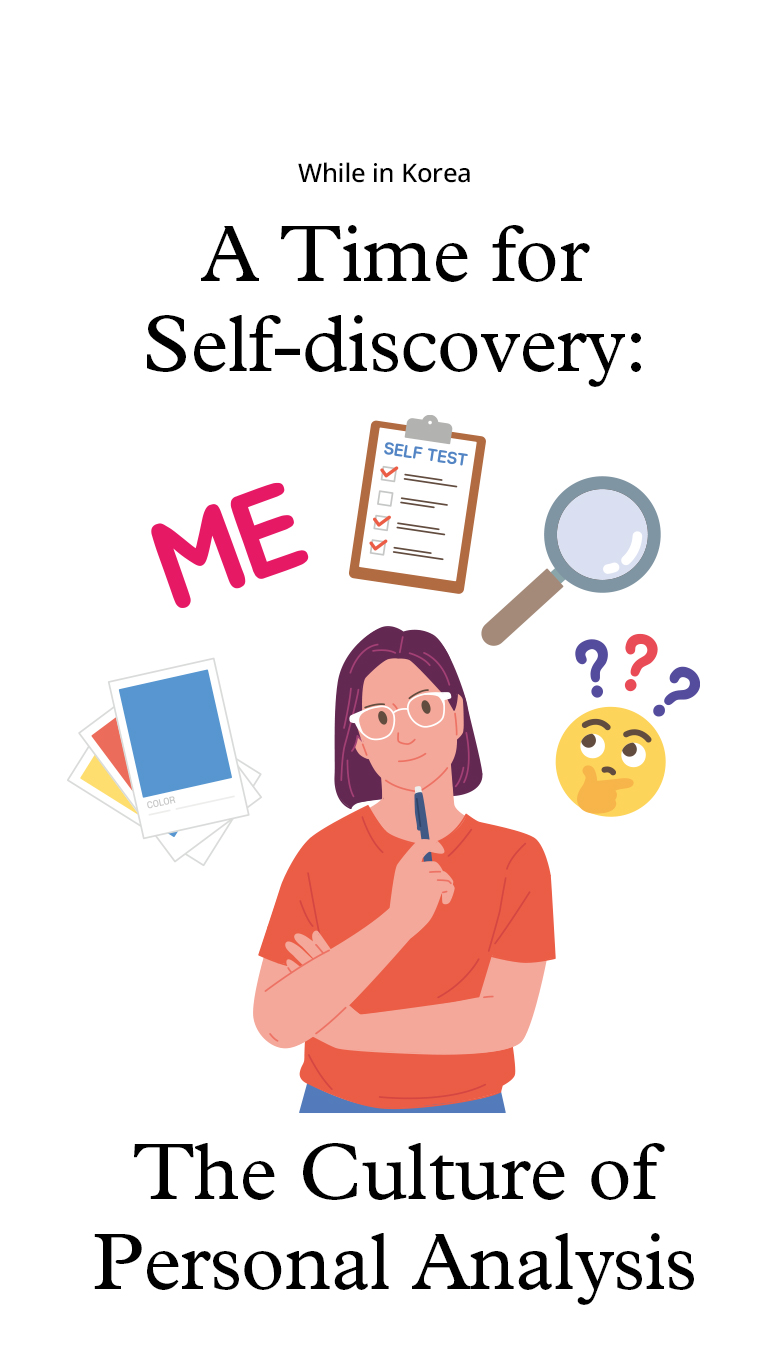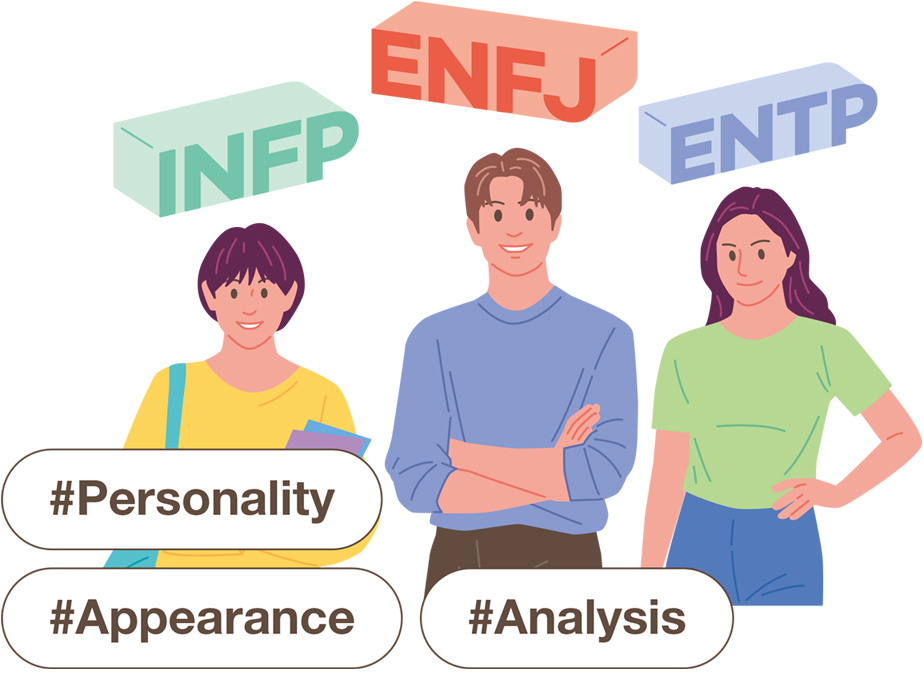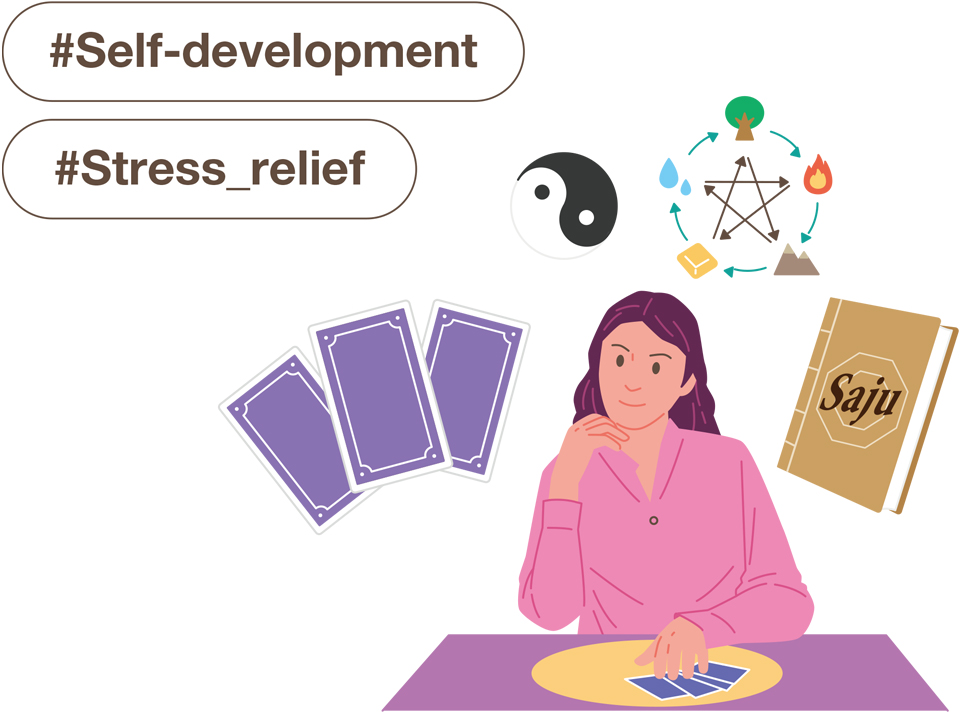
A distinctive cultural phenomenon has taken root in Korean life: the practice of “self-analysis.” In recent years, services offering insights into previously unknown aspects of one’s inner and outer characteristics—guided by expert opinions—have emerged throughout Korea. Self-analysis content has gained tremendous popularity online. What has made this culture of analyzing the “self” so integral to Korean society?
Writer. Sung Ji Yeon
Illustrator. RYUGOON
Anyone interested in Korean beauty has likely heard of “personal color”—a concept referring to color palettes that suit individuals, commonly used throughout Korea. Since personal color analysis services appeared, people have moved beyond simply following trends to purchasing makeup and clothing based on colors that complement their skin tone, eyes and hair.
What’s noteworthy here is that “personal color” represents just one example of the widespread self-analysis trend in Korea. Just as personal color has become commonplace, various self-analysis services have emerged and are now deeply embedded in daily life.
How else do Koreans analyze themselves? Beyond finding flattering colors, they seek makeup consulting as a form of self-analysis. They discover hairstyles that suit their facial structure or examine their body type and personal style. The goal is to view themselves through an expert’s lens and receive guidance on how to address areas they want to improve.
People also analyze their inner selves. MBTI serves as a prime example. It is a personality assessment tool based on a psychoanalyst’s theory of psychological types. With 16 personality types, many embrace these results positively, as they help reveal hidden aspects of themselves and better understand others. Following MBTI’s success, various personality-analysis programs continue to gain attention on social media. Recently, similar services have been launched to analyze career and workplace compatibility based on personality.
Services analyzing one’s current situation and future—such as saju (Korean fortune-telling) and tarot cards—are enjoying unprecedented popularity. Saju is a traditional East Asian fortune system that interprets an individual’s temperament and destiny based on their date and time of birth. Though unscientific, people seeking to understand their temperament and future—and thus find direction for moving forward—have increasingly turned to fortune services. This has led to the creation of platforms offering saju readings and related AI services.
Services that analyze one’s temperament and health status to recommend appropriate supplements, or that analyze genetic characteristics using hair samples, have also become commonplace.

Self-analysis culture has permeated Korean daily life. Various forms of self-analysis have become common in Korea. When a momentary trend becomes an established culture, there is always a reason—so why exactly have people become so captivated by self-analysis?
Like other countries today, Korean society places increasing importance on individual uniqueness and personalization. To achieve this, the first thing one must understand is the self.
Without being able to define oneself, it becomes impossible to keep pace with the times.
Elements like saju and tarot cards have also gained popularity because they provide comfort. Modern society is uncertain, and people live with stress and anxiety about the future. Saju and tarot cards serve as tools to address these concerns. Since consultation results allow individuals to observe and organize their emotions and situations, these practices are also embraced as forms of self-analysis.
The self-analysis culture maintains its appeal partly because the detailed information about oneself—collected through this careful examination—can create a more efficient life. From work methods to purchasing decisions to content consumption patterns, self-focused actions can deliver more satisfying results efficiently.
Some express concern about the potential effects of becoming too bound by self-analysis results, questioning this cultural trend. However, self-analysis is undeniably one method of living actively and proactively in reality. As long as one does not become overly dependent, one can try experiencing these self-analysis services. You might discover unknown aspects of yourself and find unexpected joy.
